
John Otway is an English singer-songwriter who has built a cult audience through extensive touring.

George Lowen Coxhill known professionally as Lol Coxhill, was an English free improvising saxophonist. He played soprano and sopranino saxophone.

The Mighty Mighty Bosstones were an American ska punk band from Boston, Massachusetts, formed in 1983. From the band's inception, lead vocalist Dicky Barrett, bassist Joe Gittleman, tenor saxophonist Tim "Johnny Vegas" Burton and dancer ("Bosstone") Ben Carr remained constant members. The band's final line-up also included drummer Joe Sirois, saxophonist Leon Silva, guitarist Lawrence Katz, keyboardist John Goetchius, and trombonist Chris Rhodes.
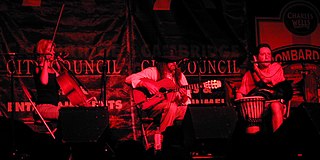
Roger John Barrett, known professionally as Wild Willy Barrett, is an English experimental musician and multi-instrumentalist, best known for his collaborations with John Otway. His musical style has included folk, blues, psychedelia, pop and punk rock and his live performances are punctuated with his dry humour and onstage wit. He is known for virtuoso fiddle playing, ability with a great number of stringed instruments, and playing slide guitar with a whole raw egg. During recent Otway/Barrett performances, he has also introduced the 'wah wah wheelie bin'.

Bob Marley and the Wailers were a Jamaican ska, rocksteady and reggae band. The founding members, in 1963, were Bob Marley, Peter Tosh, and Bunny Wailer.

The Soup Dragons are a Scottish alternative rock band of the late 1980s and early 1990s. Named after a character in the 1970s children's television series Clangers, the group is best known for its cover of the Rolling Stones' song "I'm Free", which was a top 5 hit in the United Kingdom in 1990; and "Divine Thing", a top 40 hit in the United States in 1992.
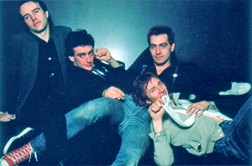
The Ruts are an English reggae-influenced punk rock band, notable for the 1979 UK top 10 hit single "Babylon's Burning", and an earlier single "In a Rut", which was not a hit but was highly regarded and regularly played by BBC Radio 1 disc jockey John Peel. The band's newfound success was cut short by the death of lead singer Malcolm Owen from a heroin overdose in 1980. Despite this the band continued under a different musical style as Ruts D.C. until 1983 when they disbanded. The band reformed in 2007.

King Tubbys Meets Rockers Uptown is a dub studio album by Augustus Pablo and King Tubby, released in 1976. It features Carlton Barrett on drums, Robbie Shakespeare and Aston Barrett on bass guitar, and Earl "Chinna" Smith on guitar. Pablo produced the album and played melodica, piano, organ and clavinet. The album was recorded at Randy's in Kingston, Jamaica. A distinctly different mix of the title song with vocals and dub, titled "Baby I Love You So", can be found on the Jacob Miller and Augustus Pablo 1975 album, Who Say Jah No Dread.
"Police and Thieves" is a reggae song first recorded by the falsetto singer Junior Murvin in 1976. It was covered by the punk band The Clash and included on their self-titled debut album released in 1977.

Cultura Profética is a Puerto Rican reggae band formed in 1996. The band has undergone several lineup changes, but founding members Willy Rodríguez, Eliut González (guitar), and Omar Silva have remained in the group throughout its history. Despite primarily performing reggae music, Cultura Profética has experimented with genres such as bossa nova, tango, jazz, and salsa. Lyrically, the group discusses socio-political and ecological issues including Latin American identity and environmental concerns, as well as interpersonal relationships and love.
"Remember the Alamo" is a song written by Texan folk singer and songwriter Jane Bowers. Bowers details the last days of 180 soldiers during the Battle of the Alamo and names several famous figures who fought at the Alamo, including Mexican general Santa Anna and Texans: Jim Bowie, William Barrett Travis and Davy Crockett. It champions the Texans' efforts against Mexico to establish an independent republic.

John Otway & Wild Willy Barrett is the 1976 debut album by English folk singer-songwriter duo John Otway and Wild Willy Barrett. Released first on their own Extracked Records, the album is a collection of recordings made between 1971 and 1976.

Deep & Meaningless is the second album by English folk singer-songwriter duo John Otway and Wild Willy Barrett. It was released in 1978. The album included the song "Beware Of The Flowers ", which was voted Britain's seventh most popular song lyric in a 1999 BBC online poll. The song's strong showing—ahead of The Moody Blues' "Nights in White Satin" and Hoagy Carmichael's "Stardust"—was the result of what Otway's website described as a "well orchestrated campaign" by fans.
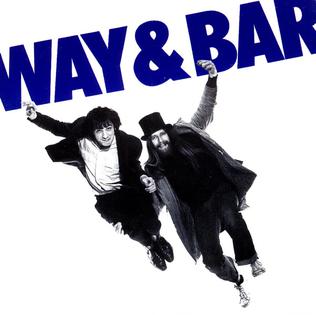
Way & Bar is the 1980 album by John Otway & Wild Willy Barrett. Their last on Polydor, it also proved to be the 2nd split of the duo lasting until The Wimp and The Wild. The name Way & Bar is derived from the billboard on the back of the DK 50/80 single being cropped for the front cover. In this case, the words 'Otway & Barrett' wrap around the sleeve and the rest of the text appears on the back cover.
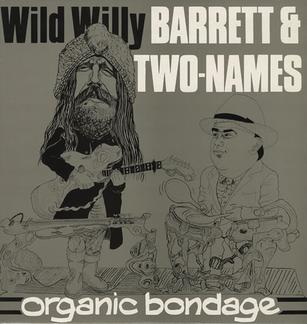
Organic Bondage is the third album by Wild Willy Barrett and only one with Stephen Two-Names released in 1986.
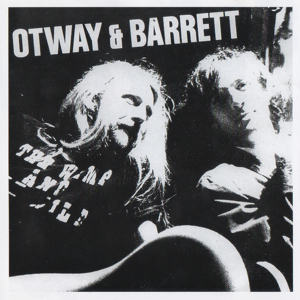
The Wimp & The Wild is the fourth and final album by John Otway & Wild Willy Barrett, released in 1989.
Please Don't Throw Me to the Christians is an unfinished and unreleased album by English singer-songwriter Eddie Stanton. It was to be released on Wild Willy Barrett's record label "Black Eye" which had, by the time the album had been fully recorded, folded. The fate of five of these songs rested in Barrett's album Organic Bondage, which he arranged to fit his style. Other tracks have been since recorded by Barrett later on in his career.
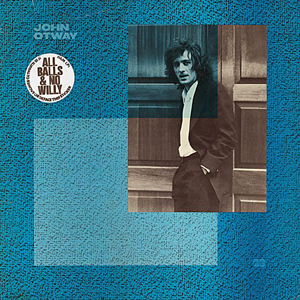
All Balls & No Willy is the second solo album by English singer-songwriter John Otway. Released in 1982, Otway was backed by new wave band The Europeans.
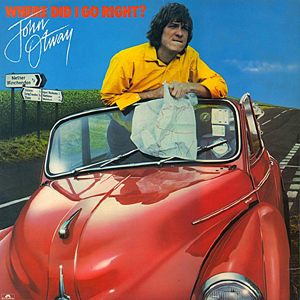
Where Did I Go Right? is English singer-songwriter John Otway's first solo album. Released in 1979 it was Otway's first departure from working with Wild Willy Barrett, and his first working with a different backing band. Most of the tracks were salvaged from an aborted attempt to record an album during August and September 1978 at Mountain Studios.

Ear of Beholder is the debut double LP by British saxophonist Lol Coxhill, released in 1971 by John Peel's Dandelion Records in the UK, Ampex Records in the U.S. and Canada, and reissued at different times by various labels around the world, in different formats.


















